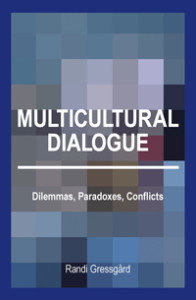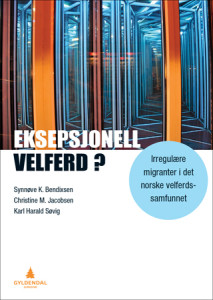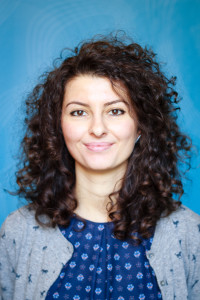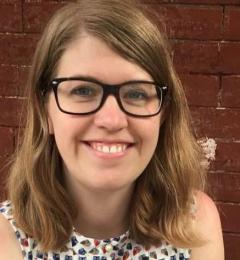 As cross-cultural migration increases democratic states face a particular challenge: how to grant equal rights and dignity to individuals while recognizing cultural distinctiveness. In response to the greater number of ethnic and religious minority groups, state policies seem to focus on managing cultural differences through planned pluralism. This book explores the dilemmas, paradoxes, and conflicts that emerge when differences are managed within this conceptual framework. After a critical investigation of the perceived logic of identity, indicative of Western nation-states and at the root of their pluralistic intentions, the author takes issue with both universalist notions of equality and cultural relativist notions of distinctiveness. However, without identity is it possible to participate in dialogue and form communities? Is there a way out of this impasse? The book argues in favor of communities based on nonidentitarian difference, developed and maintained through open and critical dialogue.
As cross-cultural migration increases democratic states face a particular challenge: how to grant equal rights and dignity to individuals while recognizing cultural distinctiveness. In response to the greater number of ethnic and religious minority groups, state policies seem to focus on managing cultural differences through planned pluralism. This book explores the dilemmas, paradoxes, and conflicts that emerge when differences are managed within this conceptual framework. After a critical investigation of the perceived logic of identity, indicative of Western nation-states and at the root of their pluralistic intentions, the author takes issue with both universalist notions of equality and cultural relativist notions of distinctiveness. However, without identity is it possible to participate in dialogue and form communities? Is there a way out of this impasse? The book argues in favor of communities based on nonidentitarian difference, developed and maintained through open and critical dialogue.
Randi Gressgård is a Senior Researcher at the Centre for Women’s and Gender Research (SKOK) at the University of Bergen. She is also affiliated with the research unit International Migration and Ethnic Relations (IMER) in Bergen. Her research interests focus on minority research, gender studies, and philosophy of science. Her publications include Fra identitet til forskjell [From Identity to Difference] (Spartacus/Scandinavian Academic Press, 2005) and Kjønnsteori[Gender Theory] (co-ed., Gyldendal Akademisk, 2008). Read more…
Religious traditions and muslim youth in europe
Christine M. Jacobsen (UiB/Uni Rokkansenteret)
Jonas Otterbeck (University of Lund)
Synnøve Bendixsen (SKOK/Uni Rokkansenteret)
A major question regarding Islam in Europe concerns the religiosity of “Muslim youth” – a category currently epitomizing both the fears and hopes of multicultural Europe. At this seminar, researchers working in 3 European countries look at how Islamic traditions are engaged and reworked by young people, born and educated in European societies, and discuss the modes of religiosity that are shaped in a context of international migration, globalization, and secular modernity.
Christine M. Jacobsen launches her new book Islamic Traditions and Muslim youth in Norway in conversation with Jonas Otterbeck, the author of Samtidsislam: unga muslimer i Malmö och Köpenhamn and Synnøve Bendixsen, the author of “It’s like doing SMS to Allah” Young Female Muslims Crafting a Religious Self in Berlin.
Seminar and book launch.
Organised in collaboration with Department of Social Anthropology, UiB.
Time: Friday 21 January, 13.15-16.00.
Venue: Uni Rokkansenteret, Nygårdsgaten 5, 6. etg (5th Floor)
Redigert av Christine Jacobsen, Synnøve Bendixsen, Karl Harald Søvig
 Irregulære immigranter har på noen områder full tilgang til velferdsytelser, men på mange områder er tilgangen svært begrenset enten i form av rettsregler eller andre barrierer. Denne antologien undersøker forholdet mellom rettslig rammeverk, institusjonell praksis og hvordan irregulære migranter selv erfarer sin situasjon.
Irregulære immigranter har på noen områder full tilgang til velferdsytelser, men på mange områder er tilgangen svært begrenset enten i form av rettsregler eller andre barrierer. Denne antologien undersøker forholdet mellom rettslig rammeverk, institusjonell praksis og hvordan irregulære migranter selv erfarer sin situasjon. Med en unik kombinasjon av juridisk og antropologisk blikk, går boken regelverket nærmere i sømmene, drøfter gatebyråkraters utfordringer og hverdagslivet til irregulære migranter og deres barn.
Hvilke regelverk får konsekvenser for irregulære migranters levevilkår? Hvordan blir dette regelverket forstått og etterfulgt av gatebyråkrater? Og hvordan blir hverdagslivet til irregulære migranter og deres barn påvirket av regelverket og dets fortolkning?
Denne boken er aktuell for velferdsprofesjoner som møter irregulære migranter som en del av sin yrkesutøvelse. Både leger, sykepleiere, helsesekretærer, lærere, helsesøstre, skolerådgivere, sosialarbeidere, sosionomer og barnevernspedagoger vil ha god nytte av Eksepsjonell velferd? Irregulære migranter i det norske velferdssamfunnet. Boken retter seg også mot frivillige organisasjoner som jobber med ulike aspekter ved migranters situasjon i Norge og andre som er engasjert i temaet.
If a LGBTI person can “stay in the closet” in the country of origin, should she then be denied asylum as a refugee? This is currently a thorny issue for several European countries, when facing asylum seekers who apply for protection on the basis of their sexual orientation or gender identity. For this IMER seminar, Andrea Grønningsæter from the faculty of law at UiB will discuss how this is currently practiced in Norway.
Research has shown that that LGBTI people (lesbian, gay, bisexual, trans and intersex people) often face specific legal and procedural challenges when applying for refugee status. In a number of jurisdictions, including Norway, LGBTI asylum seekers have been denied refugee status with reference to the fact that they can abstain from behavior that may result in a risk of persecution. A gay person can live as a gay within the confines of the home, for example, but not on the streets – and may thus not be granted protection. It is then concluded that the requirement in refugee law of establishing a ‘well-founded fear’ of persecution is not fulfilled, because concealment will mean that the asylum seeker is not revealed to potential persecutors.
In 2012 the Norwegian Supreme Court considered the right to refugee status based on sexual orientation (Rt. 2012 s. 494). In the court’s decision it was stated that a gay person may not be required to hide their sexual orientation in the country of origin to avoid persecution. In cases where it is concluded that the asylum seeker will choose to conceal their sexual orientation, the court established a step-by-step approach for assessing whether the asylum seeker is entitled to refugee status.
For her PhD project, Grønningsæter looks at how the approach that was established by the Supreme Court in 2012 for assessing asylum cases based on sexual orientation or gender identity is interpreted by the courts and the immigration authorities. She explores how the courts and immigration authorities establish the asylum seeker’s reason for concealment, as well as how concepts such as ‘being open’ or ‘discreet’ about sexual orientation or gender identity is understood.
A light lunch will be served. Welcome!
Andrea Grønningsæter is a PhD candidate at the Faculty of Law, Bergen University.
In current debates about multicultural societies, ideas about active citizenship sometimes play a part. The increase of ethnic, cultural and religious diversity in Scandinavia has led to integration and naturalization policies that focus on social cohesion and stress the need for a shared set of values, identities and commitment to active participation in society. What kind of engagement is seen as good and legitimate, and what kinds of engagement are seen as illegitimate? For this IMER lunch seminar, Noor Jdid from PRIO and SKOK will present insights from her PhD project, which explores active citizenship in Norway and Denmark, among both minority and majority populations. She draws on ethnographic fieldwork in five different neighbourhoods in Oslo (Tøyen, Holmlia, Røa) and Copenhagen (Østerbro, Sydhavn), consisting of 69 life history interviews and 13 focus group discussions with residents of these neighbourhoods, as well as expert interviews and participatory observation. The analysis shows that the intersection of place, gender, class and ethnicity often shapes citizens’ understandings of their own civic engagement. When determining what ‘counts’ as a legitimate and valuable contribution to society, the research participants drew gendered and racialized discursive boundaries between the public and the private spheres.
 Noor Jdid is a Doctoral Researcher at the Peace Research Institute Oslo (PRIO) and Center for Women’s and Gender Research (SKOK). Her PhD is part of the larger SAMKUL-project “Active Citizenship in Religiously and Culturally Diverse Societies”.
Noor Jdid is a Doctoral Researcher at the Peace Research Institute Oslo (PRIO) and Center for Women’s and Gender Research (SKOK). Her PhD is part of the larger SAMKUL-project “Active Citizenship in Religiously and Culturally Diverse Societies”.

